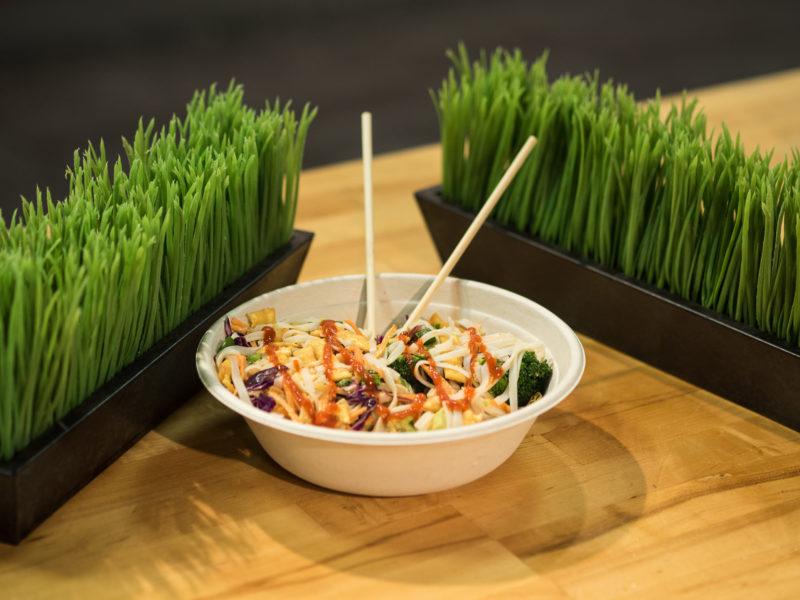It’s an unofficial Trinity tradition to complain about Aramark. The students who protest the cold pork sausages and lack of flour tortillas seem to forget about those who can’t eat these common Mabee staples, though. While eating on campus can be difficult, students with medical and religious restrictions find ways to stay healthy and satisfied.
Robin Bissett is a sophomore English major with Hashimoto’s disease, an autoimmune disease affecting the thyroid. She’s not on any medication for her Hashimoto’s, but there are other ways of keeping her disease in check.
“A lot of people have different dietary suggestions “” some people say if you’re vegetarian your thyroid will work better, or if you’re gluten free it’ll work better, and I’m not on any medication, so I was trying to help it work its best by avoiding gluten, which is what one doctor suggested,” Bissett said.
She was gluten-free for her first year at Trinity, and while she had to avoid gluten-heavy meals at Coates University Center favorites like Einstein Bros. Bagels and Taco Taco, she enjoyed eating at Mabee Dining Hall.
Her go-to meals when she was eating gluten-free were fruit, coffee and peanut butter for breakfast, and plates from the salad bar and stir fry line for lunch and dinner.
Freshii is a solid choice for gluten-free eating, as well.
Overall, Bissett was impressed with the variety of options available to gluten-free people at Trinity, from the gluten-free bread at Mabee to the salad bowls at Freshii.
“I think Trinity did a great job,” Bissett said about dining services accommodating her dietary restrictions.
Lutfi Sun, a sophomore economics major originally from Turkey, has religious dietary restrictions similar to halal guidelines in Islam.
“The halal/haram thing is a little bit different, but it has a big impact on my eating habits,” Sun said.
Since he can’t be sure if the meat served on campus was slaughtered in a halal manner, he avoids eating meat at Mabee and Coates.
“Adhering to this diet is not super easy and it’s not the same as it was in Turkey, but I like it because it makes me try different things “” it sounds weird, how can a restriction make you try different things? I like it, personally, even though it’s not super easy,” Sun said.
Living in San Antonio, Sun has been able to indulge in halal foods that are less common in Turkey, like Mexican vegetarian food, shrimp, pineapples, bananas and tuna sandwiches. He’s found out that he can broaden his palate while sticking to his diet.
Enrique Garcia, a junior chemistry major, is Catholic and sticks to a traditional, meatless diet during the period of Lent, the six weeks before Easter Sunday.
“Growing up, we learned that on Fridays, Thursdays and particular days of the week where we were supposed to be in prayer or just observe, we were not supposed to eat meat. I never really studied the whole fact behind it, it was just something that you have to do, but I thought along the way, Christ gave up his flesh so we, in a way, have to give up some sort of flesh at the same time,” Garcia said.
Though he only abstains from meat for an amount of time out of the year, he has struggled with finding food to eat on campus during that period.
“It is hard, especially when you go down to Mabee and all you see is pork, beef or chicken, and it’s a little hard, because what else can you actually eat to sustain yourself when you’re not a vegetarian or vegan?” Garcia said.
His go-to meals during Lent are macaroni and cheese and fried catfish.
Garcia also shared his personal thoughts on the importance of following a certain diet based on religious reasons.
“Observing specific diets for a religious matter is important, and it’s better to educate yourself instead of being just like me and go with the flow the entire way. You have to know why you’re doing it, so you have a passion for it, so you don’t become distracted or you actually follow through with it for a certain event or throughout your life,” Garcia said.







